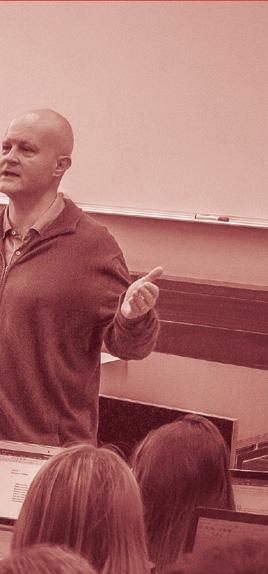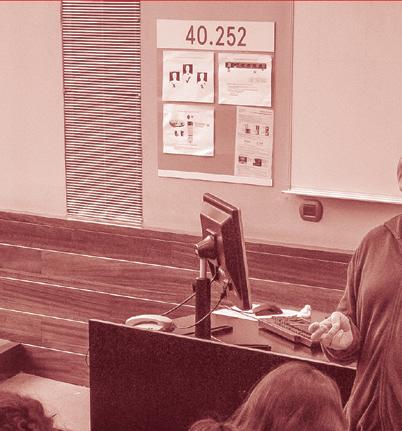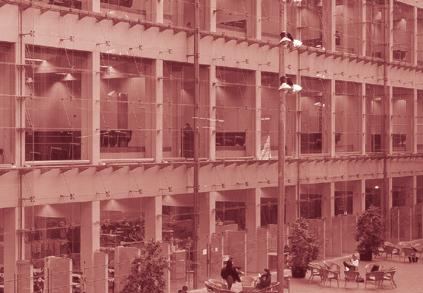POLITICAL AND SOCIAL SCIENCES POLITICAL AND SOCIAL SCIENCES POLITICAL AND SOCIAL SCIENCES FACTS AND FIGURES




















 The Dipòsit de les Aigües building, designed by architect Josep Fontserè in 1874, hosts the main library on the Ciutadella campus
The Dipòsit de les Aigües building, designed by architect Josep Fontserè in 1874, hosts the main library on the Ciutadella campus
As a public university, UPF fulfils its commitment to tackling the major challenges of the 21st century by creating, transmitting and transferring new multidisciplinary knowledge to guide the implementation of discerning policies and inspiring leadership.
TEACHING RESEARCH


Key figures:
At the undergraduate level, attention should be called to the interdisciplinary bachelor’s degree programme in Philosophy, Politics and Economics, offered jointly by the Alliance 4 Universities (A4U), a partnership consisting of UPF, the Autonomous University of Barcelona (UAB), the Autonomous University of Madrid (UAM) and Carlos III University of Madrid (UC3M). The programme was launched in the 2013-2014 academic year with the aim of training specialists in the various areas of improvement and innovation in politics and governance.
Most of the Faculty’s postgraduate programmes are taught in English and attract a highly international community. Currently, most of the master’s and doctoral students are international, primarily from Europe and Latin America, but also the United States, Canada, the Middle East and North Africa.
Key figures:
— 76% of official master’s students are international (2021-2022)
— 70% of doctoral students are international (2021-2022)
— 29% of UPF graduates have studied abroad (2020-2021)*


— Internship agreements with nearly 150 companies and institutions, such as Acció, IA, Oxfam and Red Cross
*Lower than usual because of the pandemic.
The Department is divided into two scientific sections: Political Sciences and Sociology. It also includes the subsections Social Psychology and Social Science Methodology. The two scientific sections are organized into ten main lines of research, each associated with a different research group.


— Horizon 2020:1 €6 million / 15 projects
— 2 ERC grants — 6 Marie Curie Actions
— Spanish R&D and Innovation Plan:2 €1.4 million / 16 projects
— International teaching staff:3 40%
— ICREA research professors:4 3 — Theses defended in English: 71% (2020-2021)
— 2 industrial PhD projects funded by the Catalan government (2015-2021)

The UPF education model includes active and participative methodologies that place students at the centre of the teaching-learning process
1 Data refer to the 2014-2020 period only. They include individual and consortia projects.
2 Data refer to the 2015-2021 period.
3 Data as of January 2022.
4 The Catalan Institution for Research and Advanced Studies (ICREA) offers permanent tenured positions at Catalan host institutions to top researchers from around the world.
1
2
Research groups
The Department conducts its research through these research groups, including:
— The Health Inequalities Research Group (GREDS), which focusses on the social origin and production of health inequalities, as well as the political action necessary to tackle health issues.
— The Research and Expertise Centre for Survey Methodology (RECSM), which focusses on survey methodology, survey data analysis, and experimental and quasi-experimental design.
— The Interdisciplinary Research Group on Immigration (GRITIM-UPF), which focusses on aspects of innovation and management of change processes arising from human mobility and immigration.

— The Research Group in Political Theory (GRTP), which analyses democratic societies with a focus on a variety of topics in contemporary political theory (justice and rights, nationalism and secession, religion and democracy, federalism and minority rights, EU politics and regionalism, law and pluralism, art and politics).
— DemoSoc, an interdisciplinary research group specialized in demographic and sociological analysis, as well as labour market and criminology studies.
— The Research Group in Government, Management and Public Policies, which has a long history of research and expertise in its areas of interest. Its researchers have collaborated with several public institutions.
— The Institutions and Political Actors Research Group, which brings together scholars interested in examining the effects of institutions on political outcomes, as well as the drivers of the strategies and choices of elites, social groups and private individuals.
Strategic projects
— Johns Hopkins University - Pompeu Fabra University Public Policy Center since 2013
— Jean Monnet Chair in EU Governance
— Barcelona Center for European Studies (BACES)
— Erasmus Mundus in European Politics and Society
— Erasmus Mundus in Public Policy (IBEI)
As
an institution committed to its students, above and beyond academic life, UPF promotes their participation in associations, volunteer programmes and sports and cultural activities
INTERNATIONAL AGREEMENTS
The Faculty of Political and Social Sciences is committed to training globally competent professionals with a passion for research. In order to create mobility opportunities for its bachelor students, it has signed international exchange agreements with 85 partner universities in 30 countries
Some of UPF’s main partners in this field include the following universities:
— Humboldt and Konstanz (Germany)





— Sciences Po and Toulouse (France)




— Amsterdam, Erasmus of Rotterdam, Groningen and Utrecht (the Netherlands)
— Bologna, Florence and Trento (Italy)
— Warwick, Essex and Sheffield (United Kingdom)
— Charles University of Prague (Czech Republic)
— Lausanne and Zurich (Switzerland)

— Hebrew University of Jerusalem (Israel)
— El Colegio de México and CIDE (Centro de Investigación y Docencia Económicas) (México)
— Fundaçao Getulio Vargas (Brazil)
— San Andrés and Torcuato di Tella (Argentina)
— Hitotsubashi (Japan)
The Faculty’s graduate programmes are highly international. Currently, all of its master’s degree programmes have earned the International Dimension Label, awarded by AQU Catalunya, the Catalan University Quality Assurance Agency. Moreover, all of its master’s programmes offer double degrees and international links with outstanding higher education institutions abroad (see “Main Academic Offer”).
GLOBAL RANKINGS AND RESULTS BY
SUBJECT
UPF appears on some of the most influential global rankings:
— 1st Spanish university, 156th worldwide and 69th in Europe (Times Higher Education ranking, 2022)
— 16th university in the world among universities aged 50 and under (Times Higher Education Young Universities Ranking, 2022)
— 1st university in Spain and 4th in Europe (U- Multirank, 2022)
The University also ranks high in political and social sciences:
— Among the top 100 universities in the world in political sciences (1st in Spain) (Shanghai ranking, 2021)
— Among the top 100 universities in the world in politics and international studies (1st in Spain) (QS ranking, 2022)
— Among the top 100 universities in the world in social policy & administration (1st in Spain) (QS ranking, 2022)
— Among the top 150 universities in the world in sociology (2nd in Spain) (QS ranking, 2022)
— Among the top 150 universities in the world in social sciences (THE ranking, 2022)
— Among the top 150 universities in the world in psychology (Shanghai ranking, 2021)
— Ranked 158th of the world in social sciences and public health (U.S. News & World Report rankings, 2022)
— Ranked 161st of the world in psychiatry/psychology (U.S. News & World Report rankings, 2022)
4
3
The Jaume I building was originally built and used as a military barracks. Its renovation won the 1996 Ciutat de Barcelona prize in the architecture and town planning category
MAIN ACADEMIC
OFFER
— The bachelor’s degree in Political and Administration Sciences aims to produce specialists in the various aspects of improvement and innovation in politics and governance.
— The bachelor’s degree in Philosophy, Politics and Economics approaches social sciences from a range of angles, giving students the tools they need to analyse the increasingly global, complex and connected world we live in. This is an interuniversity degree. Students thus follow different parts of the programme at UPF (Barcelona), UC3M (Madrid) and UAM (Madrid). Study abroad is also encouraged.
— Simultaneous degree in Political and Administration Sciences + Law. This programme allows students to earn both degrees in six years.
— Linguistic, national, ethnic, religious and cultural diversity is a consolidated reality in the world of modern democracies and is a trend of growing importance.
The master’s degree in Current Democracies: Nationalism, Federalism and Multiculturalism is aimed at students who wish to make a start in academic research in the discipline of political theory. This master is offering a double degree with the Geschwister Scholl Institute of Political Science (GSI) at LMU Munich (Germany).
— The master’s degree in Political Philosophy prepares researchers in this discipline, with the theoretical and methodological knowledge, and the critical and analytic attitude necessary to develop research at the highest international level and to participate in research teams providing a clear added value to the institutions or organizations in which they will be integrated. This master is offering a double degree with the University of Warwick (UK).
— The master’s programme in Migration Studies is aimed at individuals interested in Migration and Diversity Governance who are seeking quality university training that combines a solid foundation of conceptual and applied knowledge with a series of expertise and methodological research and sectoral tools, combining theoretical and empirical studies, fieldwork, comparative studies, including quantitative and qualitative analysis. This master is offering a double degree with the Erasmus School of Social and Behavioral Sciences Erasmus University Rotterdam (The Netherlands).
— The master’s programme in Research in Political Sciences aims to produce political science analysts and researchers with the necessary capacity for independent work to apply current
analytical techniques and methods productively and the necessary capacity for group work to make valuable contributions to research teams, research centers, and analysis departments and offices. This master is offering double degree programmes in cooperation with the University of Konstanz (Germany) and University of North Carolina at Chapel Hill (USA).
— The master’s programme in Research in Sociology and Demography allows students to explore questions related to social organization from a dynamic perspective, identifying the opportunities, needs and problems that arise for individuals in different stages of their lives. This master is offering double degree programmes in cooperation with Tilburg University (The Netherlands), Groningen University (The Netherlands), the University of Trento (Italy) and the University of Bamberg (Germany).
— The Erasmus Mundus European Politics and Society: Václav Havel Joint Master Programme (EPS) is a multidisciplinary twoyear Joint Master Degree Programme linking the fields of European politics, contemporary history and culture, economy, international relations and policymaking.
— PhD programme in Political and Social Sciences
5
Barcelona UPF Campus
2. Mercè building Pl. de la Mercè, 10–12 08002 Barcelona Tel. +34 93 542 20 00
Born building Pg. Pujades, 1 08003 Barcelona Tel. +34 93 295 47 10 July 2022 More information: www.upf.edu/web/politiques
Mar Campus Doctor Aiguader, 80 08003 Barcelona Tel. +34 93 542 20 00
4.
5.
@UPFBarcelona Universitat Pompeu Fabra
1. Balmes building Balmes, 132 08008 Barcelona Tel. +34 93 542 18 00 4
3. 1 6 3 5 2
Ciutadella Campus Ramon Trias Fargas, 25–27 08005 Barcelona Tel. +34 93 542 20 00
6. Poblenou Campus Roc Boronat, 138 08018 Barcelona Tel. +34 93 542 20 00




















 The Dipòsit de les Aigües building, designed by architect Josep Fontserè in 1874, hosts the main library on the Ciutadella campus
The Dipòsit de les Aigües building, designed by architect Josep Fontserè in 1874, hosts the main library on the Ciutadella campus


















